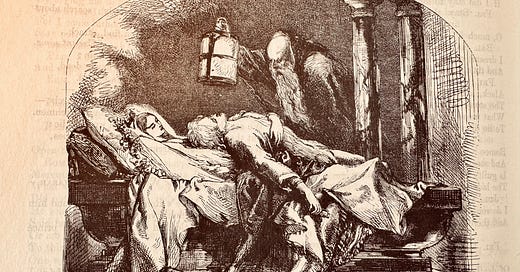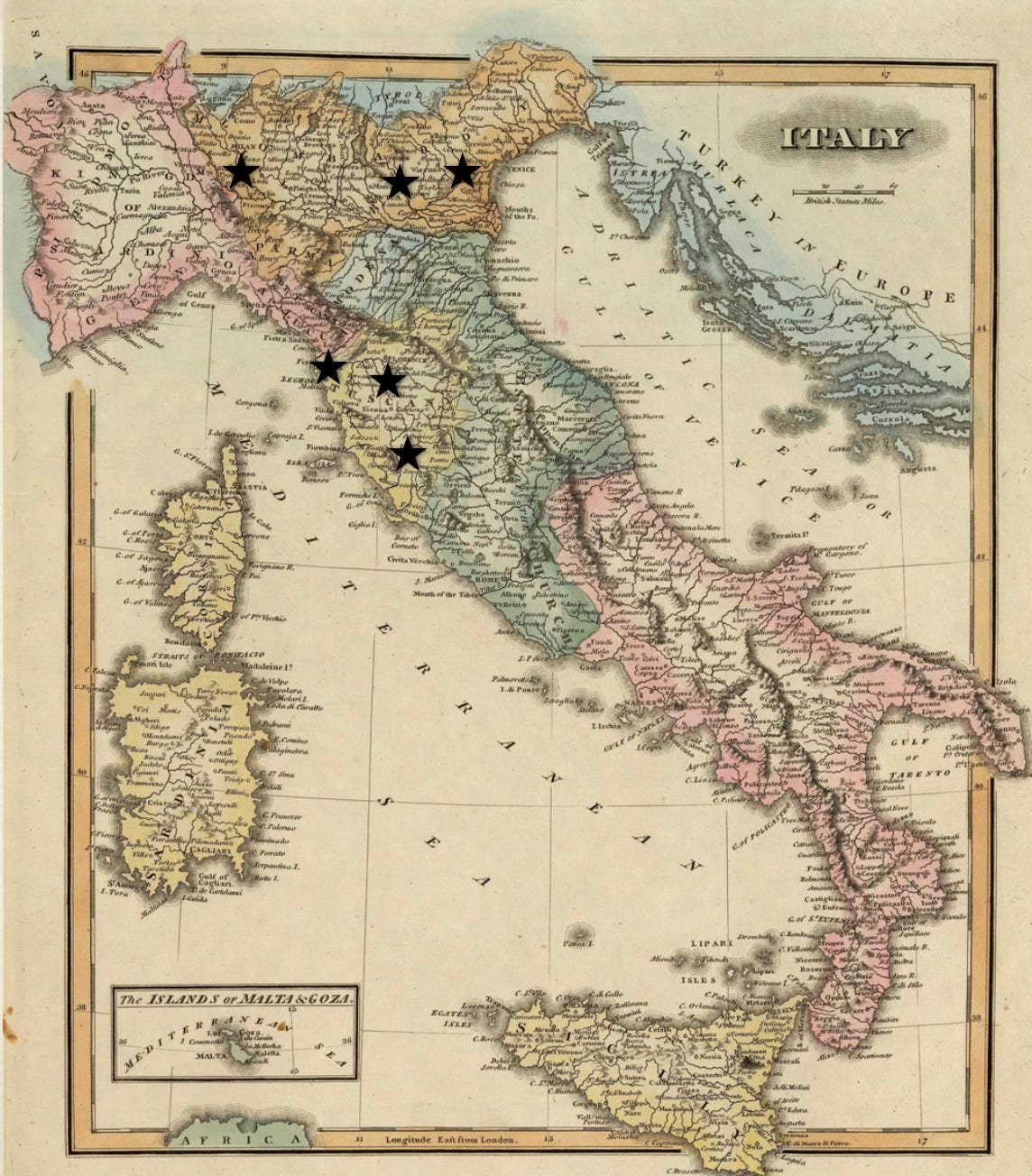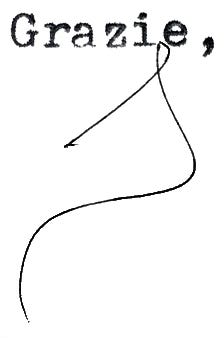Twenty-three towns in America are named after fair Verona. I grew up not far from Verona, NJ, the township known for Kip’s Castle, a medieval-style mansion, and Verona Park, designed by those same Olmsted Brothers as NYC’s Central Park. Two hours northwest of my home in Richmond, there’s a Verona, VA, too. Fittingly, it borders Staunton, home of the American Shakespeare Center.
Two households, both alike in dignity,
In fair Verona, where we lay our scene,
From ancient grudge break to new mutiny,
Where civil blood makes civil hands unclean.
– Act 1, Prologue, 1–4
An Italian first put The Tragedy of Romeo & Juliet on my radar in a serious way. Frank Occhiogrosso, Professor Emeritus at Drew University, opened the door as resident Shakespeare scholar and the curly, kind, erudite English teacher upon whom we could count once per semester to utter, “Let me be frank, well, I’ve always been Frank.” He’s one of the inspiring smarties thanked in my first book’s Acknowledgements as “classroom stirrers of my logodaedaly.”
There is no world without Verona walls,
But purgatory, torture, hell itself.
Hence banished is banish’d from the world,
And world’s exile is death.
– Act 3, Scene 3
So dramatic, Romeo is, when he’s banished to Mantua from Verona!
Have you seen Mantua? Purgatory it ain’t. Mantua, NJ and Mantua, VA (also real place), um, maybe. For its role in the play, Verona is still known as Città dell'Amore, City of Love, which seemed appropriate to highlight on this Valentine’s Day. That is, until I discovered amongst the holiday’s muddled lore that two men were executed by Emperor Claudius "The Cruel” II. One a bishop, another a priest, both were named Valentine and both were beheaded on February 14, but for different reasons and in different years of the third century. The Catholic Church honors their martyrdom with solemnity each Saint Valentine's Day. Others observe this date with early-bird reservations, overpriced prix fixe, and out-of-season strawberries draped in chocolate.
No judgment here. I cut scores of paper hearts as a kid. Also, yesterday ♥️.
But Verona.
Once the idea of life abroad shifted from ether to terra, my wife and I pulled out the map and identified candidate landing spots driven by loose criteria. Someplace old and beautiful went with out saying:
• walkable/livable without a car
• proximity to the sea
• easy access to trains and planes
• affordability
• ease of adaptability for Julian (by then, age 12)
Between us, we’d already experienced the sprawl of Rome, the warren of Venezia, the exuberant luxury of Taormina. In that light, Toscana seemed like a sensible and scenic choice: Amy Lee studied abroad in Siena, I adore San Gimignano, a dear amico owns a winery in Maremma. We’ve yoga’d in Grosseto and birthday’d in Castiglione della Pescaia. There’s wine country and the Mediterranean. But Italian friends encouraged us to consider the more dense and bustling north. You’re not coming to retire, they reminded us, you’re coming to live, work, learn a language, and send Julian to school.
Instead of flying into Firenze, we adjusted our itinerary, connected through MXP and headed east. (‘What light through yonder window breaks? It is the east, and Juliet is the sun.’) Just to see, we thought. Over ten days in November 2023, we wove through Milano, Vicenza, and Verona. Then south to Firenze, further on to Radda in Chianti and over to Lucca.
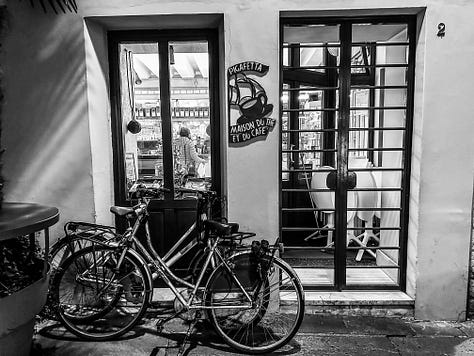
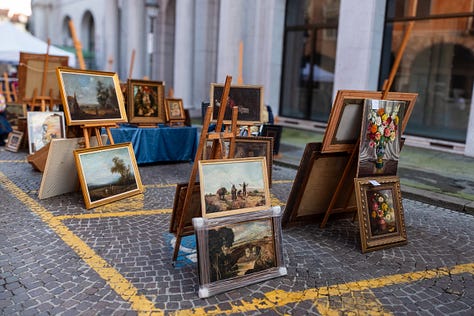
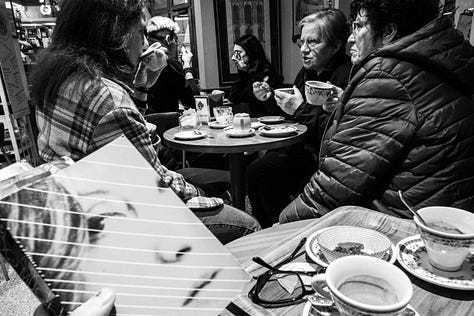
Milano è troppo grande. It’s New York fast and Paris fabulous, but too too much for our next step. Vicenza è troppo piccola. Adorable, historic, tranquil, residential, but too small to really spread our wings. Heck, we saw the same dog twice. Ah, but Verona è perfetta! The city Goldilocks’d its way into our hearts from the start. Call it kismet, coincidence, karma. Something was happening. We explored neighborhoods as would-be tenants, not tourists. We made friends, made plans, and felt at-home. The blue and gold Verona flag rolled out like red carpet. We’d meant to breeze through for two nights, but we didn’t want to leave. We added another night to our ApartHotel L'Antico San Zeno and fell deeper under its spell.
‘Parting is such sweet sorrow, that I shall say good night till it be morrow.’
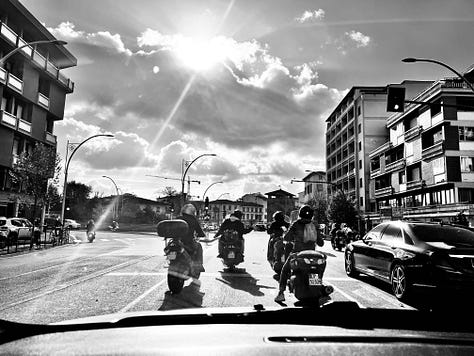
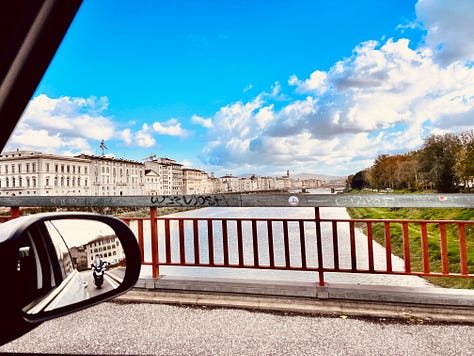
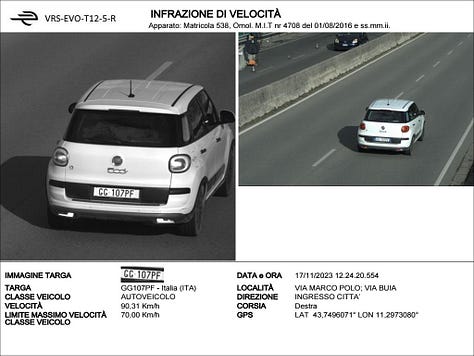
We pushed on to rendezvous with friends in Firenze, en route getting a taste of Verona’s Porta Nuova station as an easy Trenitalia hub. In Florence, I survived my first rental transaction in Italiano and whizzed a tiny Fiat around le strade so narrow that I could’ve knocked a kid’s gelato off his cone with my side mirror. Driving stick and snapping pix over the Arno River was thrilling. Exhibit A: Infrazione di Velocità.
In Radda, we were tourists. Zonin, the family that owns Barboursville Vineyards, lavished us at Castello di Albola, the 12th-century crown jewel of their kingdom in Chianti country. We Carne Diem’d (yes, carne) at Dario Ceccini’s Officina della Bistecca, and found our way to espressi and biscotti at La Dispensa, a tiny hillside shop of delicious local treats attached to the family’s trattoria, Botteghina di Dudda.
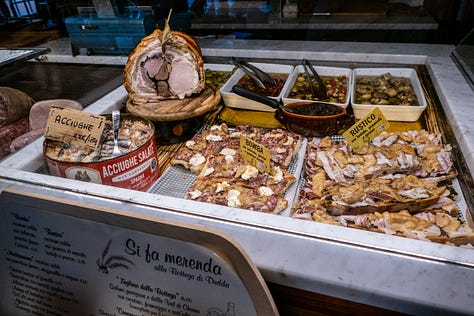
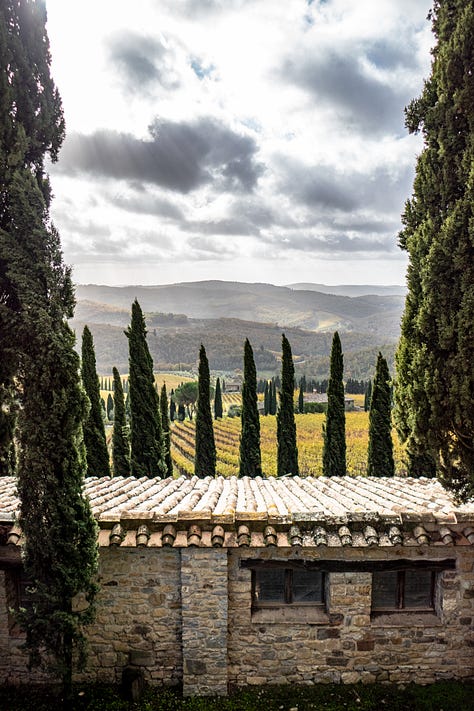
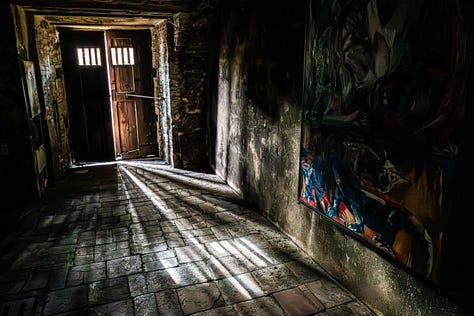
Eventually, we ended up in the exquisite medieval borgo (walled city) of Lucca. Over the previous months, I researched and trawled my network for insider contacts. A mutual friend introduced me to Ben King, American cyclist of Tour de France and Giro d’Italia fame, who’d lived in Lucca for years. He spoke of the tree-lined promenade, idyllic panoramas, Lucchese traditions, foods, festivals. How Puccini was born here. After the gelateria recos, he passed along names of sommeliers, reliable restaurateurs, and the number of a trusted realtor. Listings were viewed, boxes were checked, plans were laid. Long before we departed for this trip, we were already saying that Lucca was the place.
Except it wasn’t. Not for us. Not after Verona.
You could spend the rest of your life in Lucca and get by never having learned another Italian word beyond ciao, per favore, and grazie. It’s a marvelous wonderful beauty-beyond kind of magical place frozen in time, but it’s not gritty, working-class, kids in school, everyday, reality now Italy. It’s Italy: the theme park!
Verona is a city in motion, change, evolution. On one corner, there’s a fourth-wave coffee shop just getting started. On another corner, workers unearth ruins from the 1st century B.C. There’s a cobbler, a rug-maker, silversmith, knife-maker, a little storefront selling pasta fresca fatto a mattarello. And if you want to engage with them, you’ve got to do it in Italian.
Milan’s firms do business in English, the language of international finance. Rome is a multilingual diplomatic center, and Venice is awash with Americans everyday. Verona is an outlier. Here, in the region of Veneto, the economy is driven by agriculture, manufacturing, and tourism, too, but they’re Germans and Spaniards. Verona is larger than most towns, but smaller than major cities. Firenze and Bologna have tons of students, but Verona is balanced between locals and outsiders. There’s a small, not giant expat community. As a UNESCO World Heritage Site with an ancient colosseum, Verona’s historic core pulses with cosmopolitan vibes, but outside the city center, it’s quieter and filled with regular people, many of whom still speak regional dialects at home.
We’re not trying to just change the scenery and live like Americans in Italy. We want to live like Italians and that means assimilating to the place, the pace, and the prevailing tongue. This is the city where our journey will begin.
Or not. I mean, we have one-way tickets, but still no job or apartment. It’s called a leap of faith because you must trust that there’s solid ground on the other side.
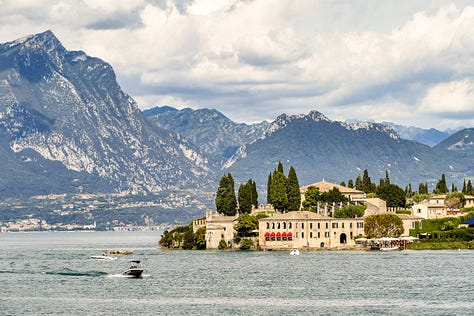
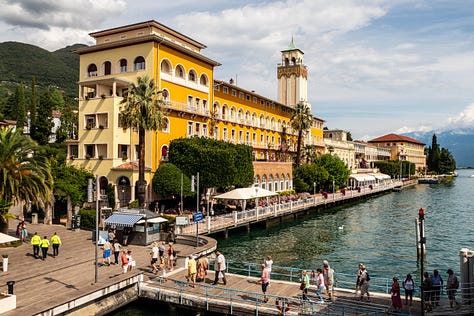
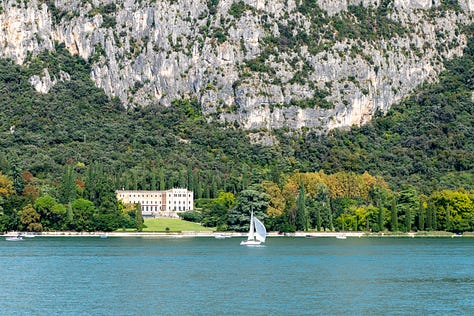
But what about that sea? The Adige River hairpins through town like a Formula 1 course. And the magnificent Lago di Garda is right there, 15-minutes by train to the nearest sand castle dip and Aperol Spritz. Skiing at 5,000-feet is under an hour away and 7,000+ in the Dolomites can be reached under two. Julian is on board. VinItaly starts here every April and the 2026 Winter Olympics finish here next February. Only question left is when are you coming to visit?
‘Did my heart love till now? Forswear it, sight! For I ne'er saw true beauty till this night.’
151 days to go.

